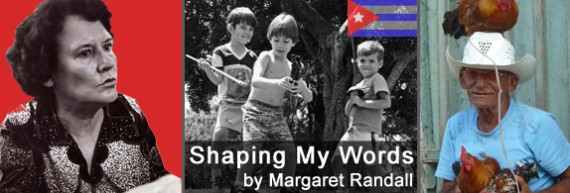Page 3
Without claiming any sort of inside track, my poet’s intuition has always told me that Haydée Santamaría chose death rather than continuing to live in a society she may, even then, have understood was not living up to the ideals for which her brother and lover gave their lives. PTSD may have played a role. Perhaps her husband’s abandonment did as well. But exceptional people are privy to huge hope and generally give up only under exceptional conditions. The PTSD Haydée had lived with for more than twenty years doesn’t seem to me to have constituted an exceptional condition; midlife divorce even less.
No, I believe something weightier and more terrifying than those issues—either or both of which may well have helped tip the balance—pushed Haydée to make her fatal decision. We will never know. Certainly I will never know. I am not aware that she left a note, and if she did even radio bembá could not have made it public.
By virtue of her history, Haydée belonged to the revolution’s inner circle. She knew all the dirty secrets. By virtue of her gender, and perhaps also her visionary quirkiness, she probably had little real power. Did she feel helpless and alone? When I think of the situation facing us today—the many small and larger obstacles to choosing life over death—Haydée invariably comes to mind. Even taking into account the important differences, I wonder if Cuba back then may have seemed to her like the United States seems to me today: quite simply a disappointment overwhelming enough to cause despair.
Contrary to what you may be thinking, I am not saying that suicide is the answer to profound and reasonable discouragement. I believe in an individual’s right to end his or her life, whatever the reason; but I do not confuse that right with a solution to our sociopolitical problems. What I am asking is: what do we do, what can we do, when faced with such weighty evidence that those who would destroy life as we know it are winning on every side?
What we face feels enormous, and can seem insurmountable to some. Distraught as I may feel, however, I keep one last card close to my breast. It’s not suicide. Neither is it the card that can win the game, but it is one that keeps me playing another hand.
That card is my unique, very loud, and irreplaceable voice.
There is one thing such a voracious enemy cannot take from us, and that is our knowledge of where we come from, our attention to the multiple struggles and what they have cost, and our voices which, together, weave the image of the harmonious future we may not live to experience. In a scenario such as the one we face, these voices—our voices—become precious beyond description. I remain convinced their combined energy makes a difference.
Lines scrawled on the walls of a Turkish prison. Diaries smuggled out of the Warsaw ghetto or a Nazi concentration camp. A song written in Chile’s National Stadium, in the horrific days following that country’s 1973 coup. Poems and protest songs from Vietnam, Nicaragua, Guatemala. A Native American drum circle, beating the rhythm of hearts that refuse to give up. Spirituals sung by slaves dreaming of freedom. Stories from our own Civil Rights and Women’s movements. The child who speaks out against her abuser. The soldier who turns his back on war. Words whispered from mouth to ear, through our long human history of atrocity and resistance.
I am a poet, so when I say voice I mean that quite literally. But I do not believe poets alone, or even artists working in other mediums, are the only ones capable of giving voice to a culture of hope and possibility. Scientists who search honestly for answers to the questions that concern us contribute to such a culture. Teachers who help their students discover how to think, health professionals devoted to curing the ill and accompanying the dying, cleaning personnel who take pride in their work, and that rare public servant more interested in improving the sustainability of life than in his own narrow status—all these and many others sing in the chorus that still, just possibly, may be able to drown out the death dirge that deafens us today.
When I am tired beyond my ability to protest the lies we are told and the lies we absorb, I do not think of ending my life—to become one less among those who fight the good fight or at least try to preserve the memory of so many good fights, intimate as well as public. I think of how I may whisper or shout, shaping my words into ever-new configurations of a dignity that documents and empowers.




Responses to “Shaping My Words”